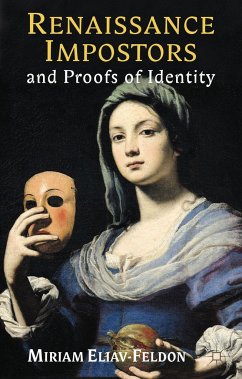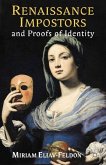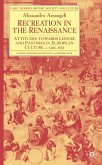Early Modern Europe was teeming with impostors. Identity theft was only one form of misrepresentation: royal pretenders, envoys from imaginary lands, religious dissimulators, cross-dressers, false Gypsies - all these caused deep anxiety, leading authorities to invent increasingly sophisticated means for unmasking deception.
"Miriam Eliav-Feldon has produced an invaluable account of the remarkably wide range of modes of imposture that were employed by men and women in early modern Europe. ... Renaissance Impostors is well written, carefully organized, and supremely accessible. ... All those who study early modern European history and culture, from undergraduates to established specialists, will find these pages to be thought provoking, and Eliav-Feldon's book should deservedly find its way onto syllabi in a wide range of fields for years to come." - The Journal of Modern History








